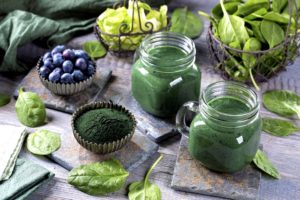
Here are six myths you should dismiss regarding antioxidants.
6 Myths about Antioxidants
Antioxidants in test tubes work the same in the body: The benefits of antioxidants were uncovered while they were being tested in tubes, so it’s believed that they will perform the same way in the body. Unfortunately, many antioxidants have poor bioavailability, which means that our bodies absorb very little of them. Benefits may not be the same as what is tested in tubes.
The more antioxidants you have, the better: Stocking up on antioxidants won’t do you any additional favors, mainly when you take them in supplement form. Eating antioxidants through diet is safer than consuming than in highly concentrated supplements.
Your goal is to destroy all free radicals: It is known that free radicals can contribute to aging and health problems, so you may think destroying them all can keep you forever young. But not all free radicals are dangerous, and our bodies need some, especially when it comes to boosting our immune system to fight off illness. So try to keep some free radicals around rather than rid your body of them.
Foods with antioxidants are healthier: Some people intentionally seek out foods with antioxidants, but these foods aren’t necessarily healthier than foods without antioxidants. These claims of antioxidants in food are often based on test tube studies, but as we have already been made aware, this usually doesn’t reflect the bioavailability of antioxidants in the body. Try to consume a balanced diet overall so you obtain a variety of antioxidants and vitamins that can help promote health.
You need antioxidant supplements: The supplement industry is worth billions and many people spend all their pennies on products that they believe will help improve their health. Some supplements can cause unwanted side effects. You can get a slew of antioxidants from eating a variety of food instead of investing in supplements.
Antioxidants treat cancer: Although there is some research to suggest that antioxidants may help to reduce the risk of cancer, they should not be used as a treatment method for cancer. In some studies, antioxidants have been shown to spread cancer. Always follow the treatment plan set out by your team of doctors.